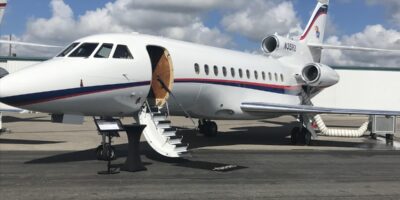AI in aviation has gotten complicated with all the hype flying around. Every week there’s a new headline about machine learning doing something incredible at 35,000 feet, and honestly, it’s getting hard to separate real progress from marketing fluff. I’ve been following this space for years now — ever since I watched a demo at an aerospace conference in Toulouse where a predictive maintenance algorithm flagged a compressor issue twelve hours before the maintenance crew even suspected anything. That moment sold me. I walked out of that room thinking, okay, this is actually going to change how we fly.
So let me try to break down what’s actually happening with AI in aviation right now, where the real gains are being made, and where we’re still mostly just talking a big game.
Predictive Maintenance Is the Quiet Winner
Probably should have led with this, because predictive maintenance is where AI is doing its most impressive work in aviation today — and almost nobody outside the industry talks about it. Here’s the basic idea: modern aircraft are covered in sensors. We’re talking thousands of data points streaming in from engines, hydraulics, avionics, environmental systems, you name it. Traditionally, maintenance schedules were based on flight hours or calendar intervals. Fly X hours, do Y inspection. Simple, but wasteful and sometimes not cautious enough.
What AI does is chew through all that sensor data in real time and spot patterns that human technicians just can’t catch at scale. A slight vibration signature change in an engine bearing. A thermal reading that’s drifting 0.3 degrees higher than normal over two weeks. Stuff that’s invisible on a daily inspection sheet but, when you zoom out, tells a pretty clear story: something is wearing down and will fail within a specific window.
I talked to a maintenance engineer at a regional carrier last year who told me their AI system caught a bleed air valve issue that would have grounded the aircraft mid-route. Instead, they swapped the part during a scheduled overnight. No delay, no cancellation, no stranded passengers. That’s not flashy, but it’s the kind of thing that saves airlines millions and keeps people safe. The ROI on these systems is genuinely staggering when you look at reduced AOG (aircraft on ground) events.
Air Traffic Management — Where Things Get Interesting
Air traffic control is one of those fields where the stakes are so absurdly high that any new technology gets scrutinized to death. And rightfully so. You’re managing thousands of aircraft in real time, in three dimensions, with weather constantly throwing curveballs. Human controllers are remarkable at this job, but there are hard limits to what any person can track simultaneously.
AI isn’t replacing controllers — I want to be really clear about that, because this gets misrepresented constantly. What it’s doing is augmenting them. Think of it like giving a chess grandmaster a computer that suggests optimal moves. The grandmaster still decides, but they have way better information to work with. AI systems can model traffic flow across entire regions, predict congestion points thirty or forty minutes out, and suggest reroutes that save fuel and reduce delays. Some of these tools are already in use at major TRACON facilities in the U.S. and parts of Europe.
The interesting part, and this is where I geek out a little, is conflict detection. AI can run thousands of “what if” scenarios per second. What if Flight 447 climbs to FL380 while Flight 512 is descending through FL370 on a converging heading? A human controller can hold maybe a dozen of these scenarios in their head. An AI system can hold essentially all of them. That doesn’t make the AI smarter than the controller — it makes the controller’s job more manageable and, frankly, safer.
Customer Service and the Booking Experience
Okay, I’ll be honest — this section is less exciting to me personally, but it matters. Airlines have been pouring money into AI-driven customer service tools, and some of them are actually decent now. The chatbots from five years ago were terrible. You’d type a question about rebooking a missed connection and get a response about baggage fees. Current systems are significantly better at understanding context and intent.
Dynamic pricing is the other big piece here, though airlines don’t love talking about it publicly. AI models analyze booking patterns, seasonal demand, competitor pricing, even things like local events and weather forecasts to adjust ticket prices in near real time. As a consumer, I have mixed feelings about this — it’s impressive engineering but it can feel like the system is working against you when you watch a fare jump $200 overnight. From the airline’s perspective, though, it maximizes revenue per seat, which is what keeps routes profitable and planes flying.
Biometric processing at airports is gaining traction too. Facial recognition for boarding, automated bag drops, that sort of thing. I went through one of these systems at Changi last year and it was surprisingly smooth. No fumbling for boarding passes, no awkward passport comparisons. Walked up, looked at the camera, gate opened. Took maybe four seconds. Whether we’re comfortable with the privacy implications is a whole separate conversation, but the technology itself works well.
Safety — The Non-Negotiable
Aviation already has an extraordinary safety record. Commercial flying is statistically one of the safest forms of transportation on the planet, and that’s the result of decades of engineering discipline, regulation, and a culture that treats every incident as a learning opportunity. So when AI enters the safety picture, it’s not fixing something broken — it’s trying to make something already very good even better.
One area where AI shines is in flight data analysis. After every flight, massive amounts of data get recorded. Historically, only a fraction of that data was ever reviewed, usually after an incident. AI can analyze all of it, across entire fleets, and flag anomalies that might indicate developing risks. Maybe pilots at a particular airport are consistently approaching slightly steeper than optimal during certain wind conditions. That’s the kind of trend that’s nearly impossible to spot manually but becomes obvious when you have algorithms combing through hundreds of thousands of flight records.
Simulation and training is another area. AI-powered simulators can generate scenarios that are more varied and realistic than scripted training programs. Instead of running pilots through the same emergency procedures every six months, AI can create novel situations that test decision-making in ways that feel genuinely unpredictable. I sat in on a sim session where the AI kept introducing cascading failures — engine issue followed by an electrical fault followed by unexpected weather. The pilots afterward said it was the most realistic training they’d had in years. That’s what makes those AI-driven training systems endearing to the pilot community, even the old-school types who are skeptical of automation.
Fuel Optimization — Saving Money and the Planet
Fuel is typically an airline’s largest or second-largest operating expense, so even tiny efficiency gains translate to enormous savings. AI is being used to optimize flight routes in real time, accounting for wind patterns, air traffic, and aircraft weight to calculate the most fuel-efficient path. We’re not talking about shaving a few gallons off here — some carriers report savings of 2-5% on fuel costs after implementing these systems, which across a major airline’s fleet means tens of millions of dollars annually.
There’s also work being done on optimizing ground operations. Taxi times at busy airports can eat up a surprising amount of fuel. An aircraft idling on a taxiway at JFK for forty minutes is burning jet fuel the whole time. AI-coordinated ground movement systems can reduce that by sequencing departures more intelligently and minimizing stop-and-go patterns on taxiways. It’s not glamorous, but neither is dumping unnecessary CO2 into the atmosphere.
I should mention — and this is a bit of a tangent — that fuel optimization AI also helps with carbon offset calculations and sustainability reporting. As the industry faces increasing pressure to reduce its environmental footprint, having precise data on actual fuel consumption versus theoretical consumption gives airlines better numbers to work with. Not perfect, but better.
Autonomous Systems — The Long Game
This is the one everyone wants to talk about. Will AI fly planes without pilots? Short answer: not anytime soon for commercial passenger flights, and probably not in the way most people imagine. The technology is further along than many realize, though. Military drones have been operating with high degrees of autonomy for over a decade. Cargo drone operations are expanding rapidly. And single-pilot operations for commercial flights — where AI acts as the “second pilot” — are being seriously studied by manufacturers and regulators.
The barrier isn’t really technological at this point. Well, partly it is — edge cases in autonomous flight are genuinely hard problems. But the bigger barriers are regulatory and psychological. The FAA and EASA move deliberately, which is appropriate when you’re certifying systems that carry hundreds of people. And passengers have strong feelings about whether a human is at the controls. Surveys consistently show that a large majority of travelers are uncomfortable with fully autonomous commercial flights. That perception matters, even if the technology could theoretically be safer.
Where I think we’ll see movement first is in cargo. There’s no passenger comfort issue, the economics are compelling, and several companies are already running limited autonomous cargo flights in controlled airspace. Within five to ten years, I’d expect autonomous cargo operations to be fairly routine in certain corridors. Passenger applications will follow, but slowly, and probably starting with reduced crew operations rather than fully pilotless aircraft.
The Challenges Nobody Wants to Talk About
Look, I’m enthusiastic about AI in aviation. That should be obvious by now. But I’d be doing a disservice if I didn’t mention the real problems. Data security is a big one. Aircraft systems are increasingly connected, which means they’re increasingly vulnerable to cyber threats. An AI system that’s managing flight parameters or maintenance schedules is only as reliable as the data feeding into it. Garbage in, garbage out — or worse, malicious data in, dangerous decisions out.
There’s also the workforce question. AI will change aviation jobs. Some roles will be augmented, some will be reduced, and some new ones will be created. But the transition won’t be painless, and the industry needs to invest in retraining and workforce development. I’ve met A&P mechanics who are worried about their futures, and I’ve met younger techs who are excited about working alongside AI tools. Both perspectives are valid.
Cost is another factor. These AI systems aren’t cheap to develop, implement, or maintain. Major carriers can absorb the investment, but smaller regional operators often can’t. That creates a potential divide where the benefits of AI in aviation accrue primarily to large players, widening the gap with smaller airlines that are already operating on razor-thin margins.
Where This All Goes
I don’t think anyone can predict exactly how AI will reshape aviation over the next twenty years. The pace of change is fast enough that projections from even five years ago already look quaint. What I do know is that the industry is taking this seriously — not in a “let’s slap AI on everything” way, but in a measured, safety-first way that’s consistent with how aviation has always adopted new technology.
The most exciting developments, to me at least, will come from the convergence of multiple AI applications. Predictive maintenance talking to air traffic optimization talking to fuel management — all sharing data and making coordinated decisions that no single system could manage alone. That’s when you get compounding efficiency gains that genuinely transform operations rather than just incrementally improving them.
For now, I’ll keep watching, keep testing these systems where I can, and keep trying to cut through the noise. If you’re interested in this stuff too, pay less attention to the headlines and more attention to what the maintenance hangars and TRACON facilities are actually deploying. That’s where the real story is.




Leave a Reply